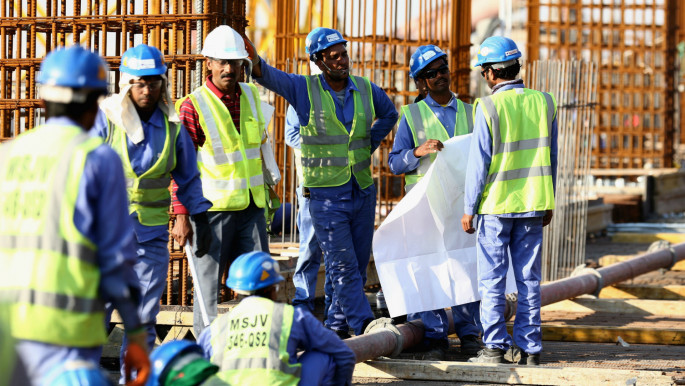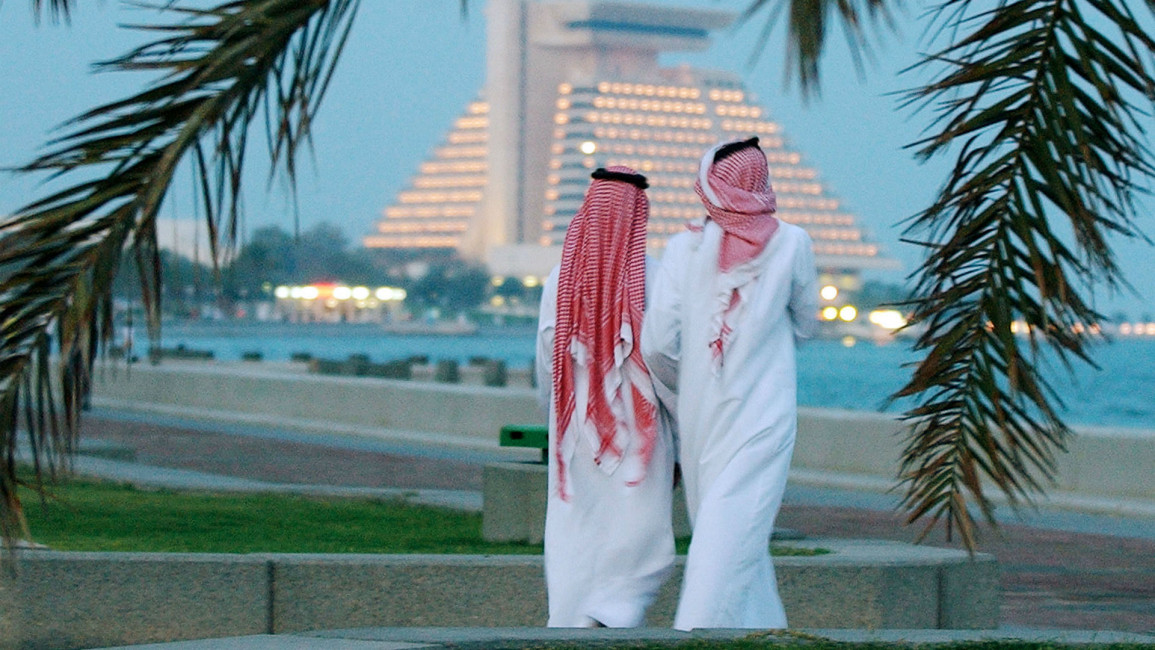
Qatar's 'bachelor ban' makes life laborious for blue-collar workers
Manual workers - almost exclusively men - are make up a large chunk in the country's migrant majority population, but they face social ostracisation in Qatar due to so-called 'bachelor bans'..
These laws prevent lone men from entering popular public spaces like parks and shopping malls on certain days of the week. As blue collar workers are usually unable to bring in their families due to financial or visa constraints, this makes life increasingly difficult for the men.
Proponents of the ban claim that the measures are necessary to ensure that families and women can enjoy public spaces without being disturbed by large groups of single men.
The laws also prevent lone migrants or groups from establishing "workers' camps" in certain residential areas.
"These bachelor workers are threatening the privacy and comfort of families, spreading like a deadly epidemic that eats through our social fabric," Qatari journalist Rashed al-Audah al-Fadeh wrote in the local Peninsula newspaper.
"Some Qatari families have abandoned habits inherent to them and no longer open their doors to visitors. This hurts us. We are accustomed to being generous toward outsiders... but now the purity of our lives, sleep and rest is disturbed."
Entrenching disparities
Since the introduction of the laws in 2010, Qatar has seen a recent step-up in their enforcement. This is seen as entrenching disparities between the local Qatari population and migrant workers who are mainly from the South Asia.
 |
|
| Male labourers usually travel to Qatar without their wives or children [Getty] |
In December last year, hundreds of migrant workers were turned away from Qatar's national day celebrations under the premise of the families-only laws. This somewhat contradicted the messages from Qatari authorities encouraging foreign nationals to engage in the country's festivities.
With a population that is over 70 percent male, the enfrocement of "bachelor bans" can prove somewhat problematic for the average single Qatari male, however, the laws disproportionately affect blue-collar migrant workers.
Some of the state's families-only laws relate to residential areas, for instance, that do not apply to white-collar workers. This means that some aspects of the laws apply almost exclusively to foreign workers who have shouldered the labour required for countries $200 billion construction boom ahead of the 2020 World Cup.
Those who breach the law can be fined up to QR 50,000 ($13,735 USD), which is or up to QR100,000 ($27,471 USD) for repeat offenders. With some of Qatar's foreign workers earning as little as $29 a week, this would essentially result in a prison sentence and or deportation.
In recent years, Qatar has been the subject of international criticism with regards to its treatment of foreign workers who make up 97 percent of their labour force, and 70 percent of the country's entire population.
This scrutiny has intensified in the run up to the 2020 World Cup, with an Amnesty International report published in April exposing what is describes as systematic abuse against migrant workers working on stadium construction sites.




